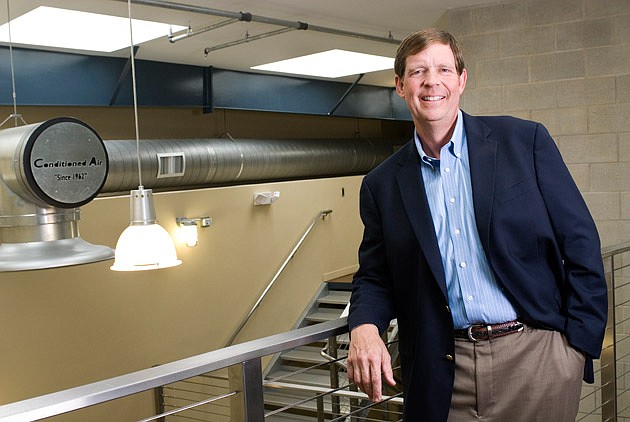- November 26, 2024
-
-
Loading

Loading

Like many companies, Theodore Etzel III's business card has a mission statement on the back of it. There's nothing unusual about that.
But read it carefully and you'll find Conditioned Air's mission statement is blunt about the air-conditioning business, calling it “tarnished with mistrust and deceit.”
Isn't that a little harsh?
Etzel doesn't think so. He complains that many air-conditioning contractors deliberately mislead consumers by tricking them into buying pricier equipment they don't need.
Conditioned Air isn't just whining about the competition. It's gained market share over the years even as competitors try to undercut with misleading come-ons. Since Etzel joined the Naples-based family business in 1995, the firm has grown from $2.7 million in annual revenues to $17 million in 2008.
The way Etzel sees it, the industry's bad reputation for gouging customers arises from the way competitors pay their repair technicians with commissions on sales of equipment.
For example, Etzel says some air-conditioning contractors advertise free or low-cost diagnosis of a unit. Some competitors in the Fort Myers-Naples area charge as low as $29.95 for service or $19.85 for a “clean and check” of the unit.
But Etzel says it would be impossible for any air-conditioning contractor to stay in business if it charged that little for each visit. “I can't possibly get a qualified technician in your driveway for $29.95,” he says. Conditioned Air's diagnostic fee is $89.
The only way these rival firms can make a profit is by driving sales of air-conditioning parts and systems. To do that, they compensate technicians for selling and reward those who exceed their quotas.
But that goes against the grain of a good technician. “The mentality of a technician is a puzzle solver,” Etzel says, not hitting a sales goal. Conditioned Air's technicians are paid by the hour. “We don't have sales quotas,” he says.
When a technician is paid on commission, he's tempted to try to charge a customer more for a unit than the suggested price, Etzel says. For example, a technician might do that if he sees a fancy car in your driveway. In addition to commissions, some contractors split any sale of equipment over a minimum with their technicians.
At Conditioned Air, technicians can't charge a customer more than the company's price book. “They can go lower, but they can't go higher,” Etzel says.
A Conditioned Air technician earns his keep irregardless of what parts he uses to fix a problem or what unit he installs. He gives the customer the choice to repair or replace a unit. “We hire for culture,” Etzel says.
The challenge Etzel has is getting the word out that's the way he does business, both to customers and his own employees. He uses the fact that he doesn't pay his technicians a commission in his advertising in radio, television, newspapers and the Internet.
Within the company, Etzel practices “open book” management in which all department managers see the financial performance of the privately held company. Bonuses are shared when the company as a whole performs well.
“The motivation is the company is expected to be profitable,” Etzel says. “People get real aware when other peoples' actions impact their wallet in a good or bad way.”
Conditioned Air has a system of rewards called “safety bucks” and “atta-bucks” they can exchange for gift certificates and tools. “We're trying to model behavior,” Etzel says. The safety bucks are for those who are careful on the job and the atta-bucks (after “atta-boy”) are awarded for positive customer comments.
Etzel isn't critical of commissions if they're structured properly. His own technicians get $15 when they sell an air-conditioning maintenance contract, an amount that is rewarding but not meaningful to a technician's overall income.
“We're paying you to be smart,” he says.
In the end, Etzel's betting that his way of compensating will help his firm make it through the economic downturn. Conditioned Air has had its share of cutbacks, but Etzel says revenues this year will likely be even with last year because some competitors have gone out of business. “There's not an easy dollar out there,” he says.